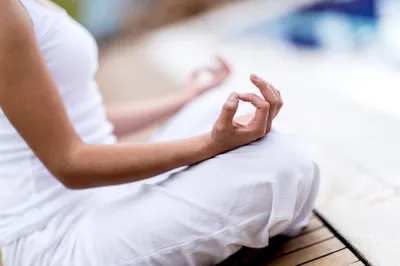Don’t take it from me; take it from the experts—the real health care professionals who suggest that neglecting self-care, or not taking enough “me time,” can have harmful effects on your health and wellbeing.
So the next time you feel guilty for taking that yoga class or lazy for indulging in a weekly massage treatment, consider the many benefits of taking regular, self-deserved breaks from our stressful lives to do something that actually makes you calm and happy.
Here are ten “me time” tips from health care experts…
1. Just 20-Mintues of “Me Time” Per Day!
Mental health experts from the American Holistic Health Association (AHHA) claim that a mere 20-minutes of me-time per day is all it takes to calm stress, balance emotions, and ward off all sorts of nasty illnesses. I think that sounds totally doable!
2. Self Care Has a Domino Effect
Believe it or not, there is a serious emotional toll to never giving your mind and body a break. In fact, mental health researchers claim that investing in our health and happiness with self-care will trickle down into other parts of our lives—benefiting our physical health, relationships, goals, and giving us more energy to care for others.
3. Unplug & Explore Nature
Research from the Association for Psychological Science suggests that being one with nature greatly improves our mental and physical health, produces greater life satisfaction, and reduces overall stress. So unplug from your devices, get up off your couch and explore your local parks, trails, and green spaces.
4. Stress is Contagious
Atchoo! Sorry if I got any of my stress on you! In a world where University of Hawaii researchers claim that second-hand stress is just as contagious as a cold, we should be wary of the level of anxiety that surround us. The 2012 study claims that our brains act like sponges, literally absorbing the worries, negative emotions, and stress signals that our coworkers, friends, and family members emit.
5. Smile A LOT!
Turning that frown upside down impacts more than those around us. The act of smiling, creates happiness, and studies conducted by the US National Institutes of Health proclaim that happiness reverberates through body and mind—to create a more positive and energetic outlook on life, one that can actually help ward off sickness and diseases (i.e., cancer and heart disease).
6. Get Busy
Adult me-time can also turn into me-and-my-special-someone-time when it comes to beating stress. Indeed, studies supported by the National Institute of Mental Health found that couples who had intercourse every day for a 2-week period improved the way in which their brains handled stress. The study revealed the regular sex caused fresh cell growth in the hippocampus, the area of the brain that manages stress and anxiety.
7. Do Cardio
Don’t feel bad for leaving work early to go for a run or play tennis. Why? Because researchers from Oxford’s Neuroscience department link regular cardio exercise—the kind you get from long-distance running or spin class—to reduced calories, stress, pain relief, and depression.
8. Take a Nap
The next time you feel selfish or lazy for taking a nap in the middle of the day, consider how beneficial sleep is to your overall health. Consider research from BMJ Group, an UK-based organization and international forum concerned with quality and safety in healthcare, found that quality sleep promotes better focus, job productivity, and strengthens immunity against diabetes, obesity, and heart disease.
9. Get the Stress Out!
H-e-double-hockey-sticks YEAH! Even though I’m not in favor of dropping expletives very often, research from the Keele University in England claim that dropping the odd F- or S-bomb can actually calm stress, soothe physical pain, create social bonds, prevent violent physical retribution, and bolster confidence. And don’t tell mom, but the cathartic act of swearing can actually feel quite empowering and satisfying!
10. Act Mindfully
Do you let your mind wander often? Well, you may be impacting your level of happiness in the present if you do, according to a 2013 study published in the British Journal of Psychiatry. Findings show that living in the now and showing gratitude for what you have in the present can banish stress while creating a more harmonious, quality life.













